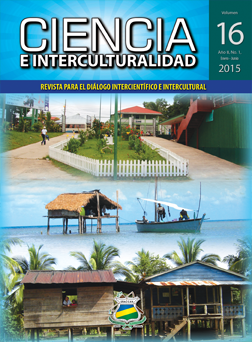MASCULINIDAD Y PATERNIDAD EN HOMBRES DEL BARRIO FÁTIMA, BLUEFIELDS-NICARAGUA
Palabras clave:
Percepción, masculinidad, paternidad, ejercicio de la paternidad.Resumen
El estudio sobre masculinidad y paternidad se desarrolló con la participación de hombres que residen en el Barrio Fátima de la ciudad de Bluefields, en donde se indagó sobre las representaciones mentales y conductuales que poseen acerca de la masculinidad y la paternidad.
La metodología de la investigación fue cuantitativa y cualitativa, participaron 49 hombres que son padres de familia, consultándose sobre sus percepciones sobre la masculinidad y paternidad. Mediante entrevistas, se exploraron las experiencias y situaciones que limitan el ejercicio de la paternidad responsable, cuyos resultados fueron tratados con la técnica de análisis de contenido y discurso. También se utilizó el programa SPSS 17 para el análisis de los datos.
En los resultados se destacan que masculinidad significa ser varón, lo que le define como hombre y lo diferencia de las mujeres, para ello deben poseer atributos de virilidad. Su concepción de masculino está vinculada con la forma en que visualizan el ejercicio de la paternidad, lo cual significa tener una familia, proteger, proveer alimento, casa, ropa y educación a los hijos e hijas; mencionan que el principal factor que limita el ejercicio de la paternidad responsable, es no haber sido instruidos para ser padres, la falta de voluntad, el alcoholismo y el desempleo.
Summary
The research of masculinity and fatherhood was developed with the participation of men who live in the Fatima neighborhood of the city of Bluefields, with the intention to find out about the mental and behavioral representations that they have regarding masculinity and fatherhood.
The research methodology was quantitative and qualitative, involving 49 men who are parents, in order to find out their perceptions related to masculinity and fatherhood. Through interviews, we explore the experiences and situations that limit the exercise of responsible fatherhood; the results were treated with the technique of analysis of content and discourse. The SPSS 17 software program for data analysis was also used.
The results highlighted that masculinity means to be male, also is what defines them as a man and differentiates them from women, and for this is imperative to have attributes of virility. It also demonstrated that their male conception is linked to the way they visualize the exercise of parenthood, which means having a family, to protect, provide food, shelter, clothing and education for their children. The research indicates that the main factor limiting the exercise of responsible parenthood is not being taught to be parents, but also the lack of will, alcoholism and unemployment.

